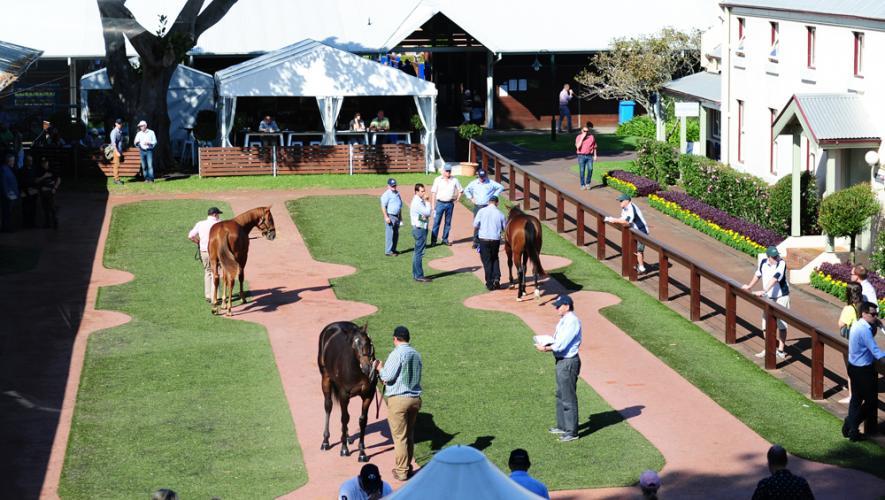Old values survive as Inglis moves on
“For any company to reach 150 years in business is a tremendous achievement, but for it to be family-owned throughout, is something else,” says Jamie Inglis.

A lot has changed in the 150 years since the Inglis family started selling pigs and goats from a paddock near the centre of Sydney – and a lot more is about to change. But a lot will also stay the same.
This week William Inglis and Son will stage the last Easter Yearling Sale to be held at its Newmarket Saleyards near Randwick racecourse before moving to a new complex at Warwick Farm in Sydney’s west.
While the move involves much upheaval and nostalgic emotion, the things that have made Inglis one of the world’s great bloodstock auction houses won’t be left behind.
Things that can be measured, like the quality of the horses they sell. And things that can’t, like the “unshakeable integrity” instilled by the firm’s founder, William Inglis, a man whose word was his iron-clad bond and who instituted principles that have been passed down the generations.
The original William Inglis was a son of Scottish immigrants who arrived in Sydney in 1815, establishing a farm, Craigend, near Camden that is still owned by the family.
After setting up his first business in George St, Sydney in 1867 selling livestock and general produce, he moved uptown to a building that became known as the Inglis Horse Bazaar and then, in 1906, to the present location.
Throughout its history, William Inglis and Son has moved in step with Australian horseracing.
The company has survived depressions, wars, disease and the near financial demise of some of the country’s greatest trainers, all the while selling horses and livestock with honour, trust and decency.
When the first John Inglis, the “Son” in the company’s title, died in 1914, the reins were taken up by his 23-year-old son Reg who kept the business alive while his older brothers were away at the First World War.
By 1920 Sydney boasted eight racecourses and the Inglis family sold many of the great horses that ran on them.
Reg Inglis ran the company so successfully that in 1917 he bought the Newmarket stables for £50,000.
On Reg’s death in 1957, his son John became managing director, presiding over a period of unprecedented expansion and growth.
A man known universally as “The Boss”, John Inglis sold almost every horse to pass through the Newmarket sale ring from the early-1950s till his retirement in 1988 – around 40,000 of them.
“In my day, I’d do the lot. Start in the morning, have a pie for lunch, and keep going till dark,” he said shortly before his death in 2006 at the age of 88.
“That’s how we did business.”
As managing director and chairman, John Inglis was also confronted by one of the greatest crises the firm was to encounter, and one he handled with characteristic integrity.
In the 1990s the collapse of tax-minimisation schemes involving the purchase of thoroughbred yearlings came close to ruining some of Australia’s biggest trainers.
When the schemes suddenly fell apart and the bidders couldn’t find owners for the yearlings they’d purchased, Inglis paid every breeder.
To John Inglis, again, it was “how we do business.”
For the current generation of the Inglis family, the move away from Newmarket is being met with mixed emotions, but with confidence.
“Being a fifth-generation family member in the business is a great privilege, but also carries a great responsibility to not only justify and maintain all the hard work that has been done, but to ensure we continually evolve to meet the future,” says John Inglis’s son and deputy chairman Arthur Inglis.
For his cousin and fellow director Jamie Inglis, the move is a part of the company’s continuing evolution.
“For any company to reach 150 years in business is a tremendous achievement, but for it to be family-owned throughout, is something else,” says Jamie Inglis.
“The company has survived many difficult times, but good people create successful businesses and we will continue to move ahead thanks to the good people Inglis has employed for 150 years.”














